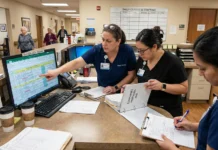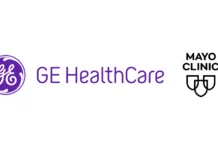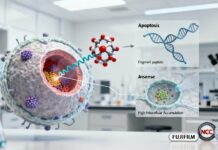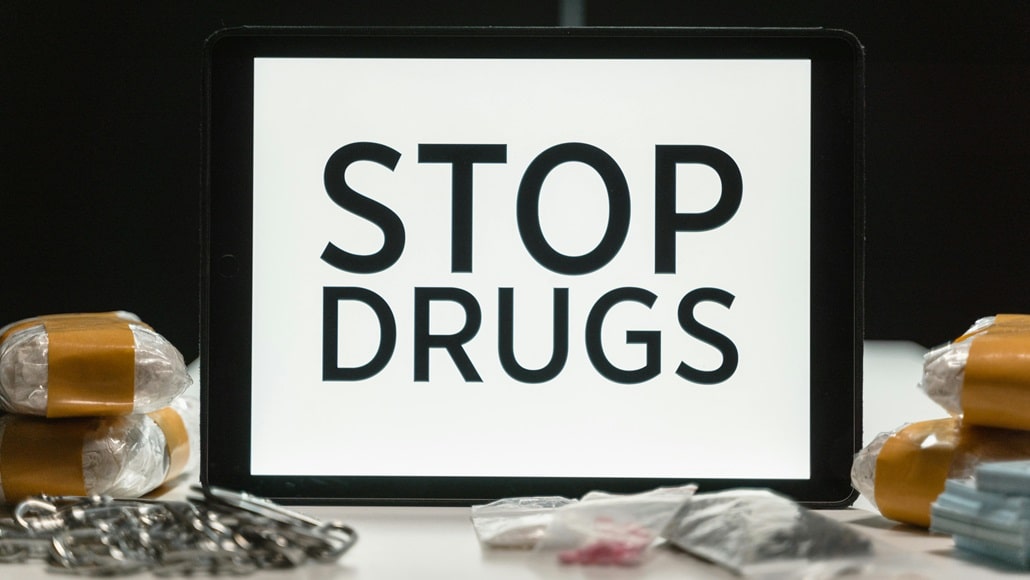People struggling with addiction recovery need support from others and do not walk this path alone. Massachusetts features a strong community-based support network which serves as a vital foundation for assisting people to recover from substance use disorders and sustain long-term sobriety. The support networks bring together professional treatment services and peer support groups with community resources to deliver complete recovery programs.
Inside This Guide:
- Understanding Community Support Networks
- Key Components of Recovery Support
- Massachusetts Recovery Resources
- Success Through Community Connection
- Getting Started with Recovery Support
Understanding Community Support Networks
Addiction recovery needs more than medical treatment because a solid support system offers guidance along with understanding and accountability. Between 2017-2019 in Massachusetts about 3.4% of residents battled drug use which exceeded the national average of 2.9% therefore community-based support networks became essential.
Community support networks function as essential lifelines that deliver multiple care levels to help people achieve recovery. If you’re considering treatment options, you can tour a drug rehab in Massachusetts to learn about their programs and support services that can enhance your journey to recovery.
Key Components of Recovery Support
Community-based recovery support networks achieve effective results through their comprehensive methods of addiction therapy and continuous recovery support. These networks typically include:
Professional Treatment Services
Several specialized treatment programs operate in Massachusetts including the Massachusetts Alcohol and Substance Abuse Center (MASAC) based in Plymouth. This facility provides comprehensive treatment services, including:
- Drug and alcohol use counseling
- Addiction recovery services
- Structured treatment programs lasting 30-90 days
- Professional medical supervision
Legal Support Systems
The state offers progressive legal support systems for individuals who are battling addiction. Massachusetts runs adult and juvenile drug courts which prioritize treatment options over penalties for drug offenses. These specialized courts can help participants:
- Access mandatory treatment programs
- Receive reduced sentences upon completion
- Have charges potentially dropped
- Get connected with community resources
Peer Support Groups
Peer support functions as one of the strongest components of community-based recovery networks. These groups provide:
- Regular meetings with others in recovery
- Shared experiences and coping strategies
- Emotional support during difficult times
- Accountability partnerships
- Celebration of recovery milestones
Medical Resources
Medical interventions have enabled the state to make substantial advancements in its fight against addiction. The Massachusetts Prescription Monitoring Program shows a 48% reduction in opioid drug prescriptions between the third quarter of 2022 and the first quarter of 2015. The decline in opioid prescriptions reveals Massachusetts’ dedication to reducing addiction rates and providing recovery support through essential services.
- Medication-assisted treatment options
- Regular health monitoring
- Mental health services
- Withdrawal management support
Massachusetts Recovery Resources
Massachusetts recovery support networks demonstrate their power through widespread availability and a wide range of options. A wide range of resources suitable for different situations is available throughout Massachusetts for individuals seeking support.
Community Health Centers
Addiction recovery services rely heavily on community health centers which provide:
- Initial assessments and treatment planning
- Ongoing medical care and monitoring
- Connection to social services
- Family support programs
- Multilingual services for diverse communities
Recovery Community Organizations (RCOs)
RCOs serve as essential elements in sustaining successful recovery for extended periods. Recovery-focused individuals frequently manage these grassroots organizations which offer:
- Peer recovery coaching
- Social activities and sober events
- Skills training and job placement assistance
- Housing support and referrals
- Recovery advocacy and education
Family Support Services
The impact of recovery extends beyond the individual to encompass their whole family. Massachusetts recovery networks provide comprehensive family support services to acknowledge the impact of recovery on entire families.
- Family therapy sessions
- Educational workshops about addiction
- Support groups for family members
- Resources for children affected by addiction
- Crisis intervention services
Employment and Housing Programs
Long-term recovery from addiction depends heavily on maintaining stable employment and housing. Specialized programs within community-based support networks assist people by offering several targeted assistance options.
- Develop job search skills
- Connect with recovery-friendly employers
- Find stable, supportive housing
- Access educational opportunities
- Build financial literacy skills
Success Through Community Connection
The fundamental principle of connection establishes the effectiveness of community-based recovery support networks. The likelihood of individuals sustaining long-term recovery increases when they feel understood and supported by their community.
Building a Support System
Multiple layers of community connection are necessary to establish an effective support system.
- Primary Support consists of immediate family members and dependable friends who offer daily motivation and accountability.
- Healthcare providers along with counselors and recovery specialists offer professional guidance throughout the recovery journey.
- The Peer Support network comprises people who have recovered from similar issues and can share their experiences and insights.
- Community Support includes organizations and resources within the local area that deliver practical assistance along with opportunities.
Maintaining Recovery Momentum
The key to achieving sustained recovery rests on individuals maintaining active participation within their support networks. Successful recovery programs encourage individuals to:
- Attend regular support group meetings
- Maintain consistent communication with recovery coaches
- Participate in community service activities
- Engage in healthy lifestyle programs
- Build new sober social connections
The Role of Technology
The utilization of technology in modern recovery support networks expands accessibility and effectiveness.
- Virtual support group meetings
- Mobile apps for recovery tracking
- Online resource directories
- Telehealth counseling services
- Digital community forums
Getting Started with Recovery Support
Recovery initiation can overwhelm individuals yet Massachusetts community support networks aim to simplify access to recovery resources.
Initial Assessment and Planning
The initial stage of recovery support journeys involves a thorough assessment which determines the subsequent steps for treatment.
- Level of care needed
- Most appropriate treatment options
- Available support resources
- Potential barriers to recovery
- Individual goals and preferences
Navigating Insurance and Payment Options
The Massachusetts recovery networks work to make treatment available for everyone who needs it:
- Most insurance plans cover addiction treatment
- State-funded programs for eligible individuals
- Sliding scale payment options
- Financial assistance programs
- Payment plan arrangements
Creating a Personalized Recovery Plan
Every individual’s recovery journey is unique. Support networks work to develop personalized treatment plans by taking into consideration various factors.
- Personal recovery goals
- Work and family commitments
- Cultural and religious preferences
- Co-occurring mental health conditions
- Available support systems
Building Long-term Success
Sustainable recovery requires ongoing support and commitment. Community networks help individuals:
- Develop relapse prevention strategies
- Create healthy daily routines
- Build stress management skills
- Strengthen family relationships
- Plan for future challenges
Your Next Steps Forward
The path to recovery becomes more feasible when individuals have access to the appropriate support system. Massachusetts’ community recovery networks deliver extensive resources and support services aimed at assisting individuals throughout their entire recovery process.
Both new recovery starters and supporters of loved ones should be aware that assistance options are available. Professional expertise along with peer support and community resources work together in these networks to establish a solid foundation for sustained recovery achievements.
The journey to recovery presents several obstacles but Massachusetts’ strong community support systems ensure you have companionship along the way. You can start your journey to lasting recovery by connecting with available resources and support systems today.
Understanding Recovery Success
The efficacy of Massachusetts’ community-driven recovery support networks stands out through personal accounts and comprehensive statistical data. The state’s addiction recovery treatment approach along with its outcomes have experienced significant positive changes due to these networks.
Measuring Progress
Various indicators help measure successful recovery outcomes.
- Sustained periods of sobriety
- Improved physical and mental health
- Stronger family relationships
- Stable employment and housing
- Active community engagement
- Personal growth and development
Community Impact
Strong recovery support networks deliver benefits that extend past individual achievements to support entire community well-being.
- Reduced healthcare costs
- Lower crime rates
- Increased workforce participation
- Stronger family units
- Enhanced community resilience
- Greater public health awareness
The extensive community benefits demonstrate why it is crucial to maintain and grow support networks throughout Massachusetts so that everyone requiring assistance can receive the resources needed for successful recovery.


















